When it comes to discussing famous movie directors, Alfred Hitchcock’s name is almost always near the top of the list. Hitch’s movies defined his generation and introduced what would become blueprints for modern cinema. Whole courses are dedicated to studying his films, and deciding which are the best Alfred Hitchcock movies is a discussion we continue to have to this day.
Known as the “Master of Suspense,” Hitchcock was a British director who is perhaps best known for his films exploring horror and thrillers, but he also incorporated romance, comedy, and redemption into some of his films. Even today, Hitchcock’s films are almost universally loved by audiences and critics alike, and he enjoyed international fame and success during his own lifetime.
Alfred Hitchcock was also one of the most prolific directors ever to sit behind a camera, making 53 feature films over his nearly 60 years in the entertainment industry. He even had one of the greatest hot streaks of cinematic history. Between 1950 and 1960, Hitchcock made 12 feature films, and in one three-year stretch he released two movies a year.
With such a long-spanning, successful career, how can we choose which titles are the greats? StudyFinds checked with 10 expert websites to come up with this list of the best Alfred Hitchcock movies ever made. Let us know if you think we overlooked one in the comments below.
The List: Best Alfred Hitchcock Movies, According to Film Experts
1. “Psycho” (1960)
Most would agree that this is Alfred Hitchcock’s most iconic film and the beginning of modern horror in cinema. It was nominated for four Oscars, including best director, but it’s Anthony Perkins who steals the show with his chilling performance.
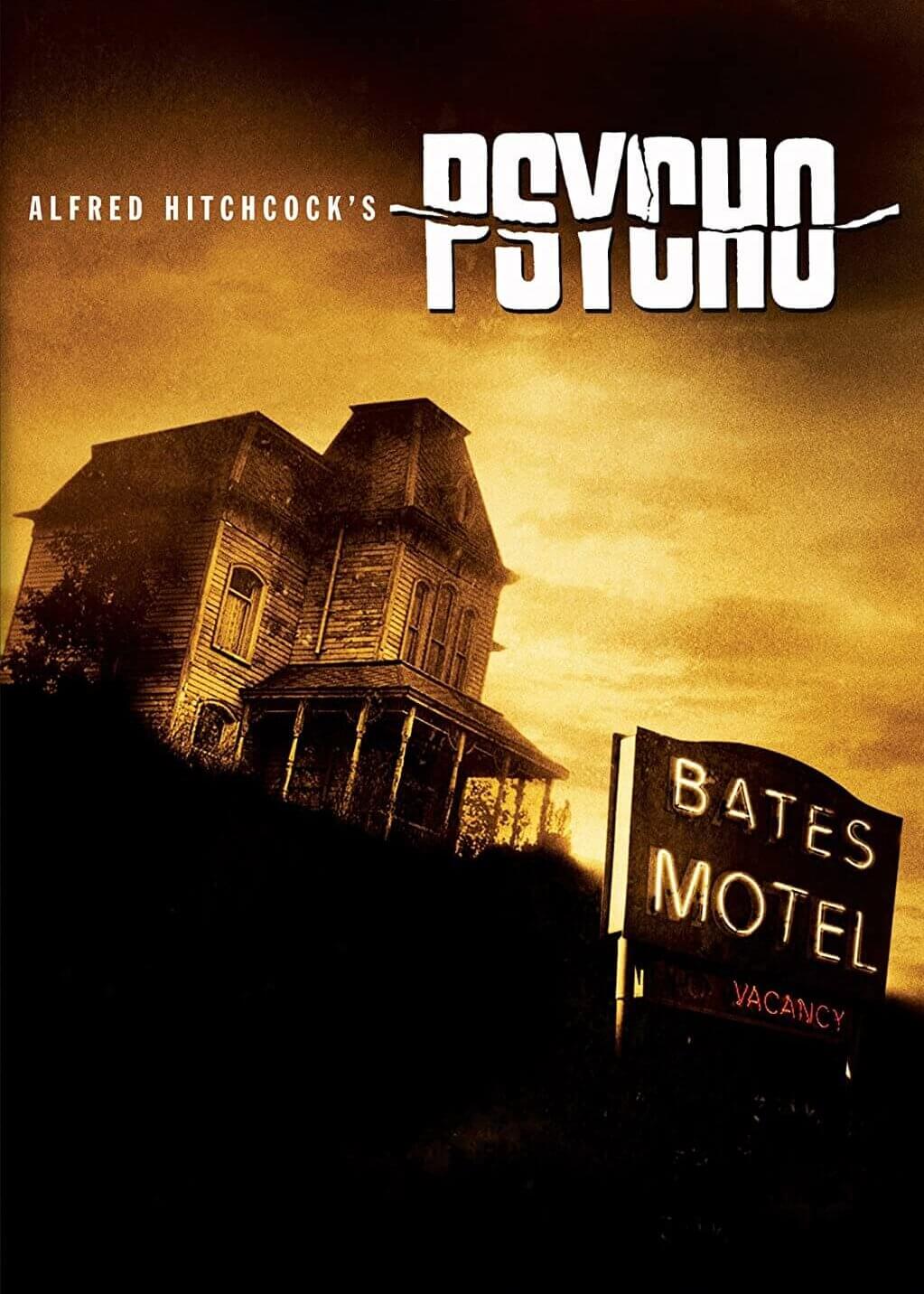
“Psycho is the epitome of Hitchcock’s brilliance and was so cutting edge for its time,” writes The Cinemaholic. “Psycho would revolutionize the horror genre, and also begged the question of ‘what is too taboo for film?’ and we are all indebted to Hitchcock for raising that bar.”
“Psycho is much more intimate than Hitchcock’s epics, and that intimacy is what brings the director’s attention into focus,” adds Studio Binder. “The sinister story of Psycho was a major spark plug for horror cinema, which would only continue to grow in the decades following the release of the film. It’s hard to understate the mastery of the shower scene and how Hitch took a B-movie premise and it made it a work of art.”
“Hitchcock’s back-to-the-basics, infamous thriller essentially invented the horror slasher subgenre, and it playfully upends our expectations about cinematic perspectives, points-of-view, and just how far a film’s narrative can go to pull the rug out from under audience expectations,” gushes Entertainment Weekly. “Bernard Hermann’s strings-exclusive score is more effective and chilling than most full orchestral soundtracks (or any horror backdrop in the last 60-plus years of cinema), while Hitchcock finds innovative, dynamic methods for shooting everything, including about twenty different ways to present a standard staircase.”
2. “Strangers on a Train” (1951)
Praised for its dark and diabolical humor, it’s a whirlwind of mayhem as a sordid conversation between two strangers gets taken too far. It’s based on the 1950 Patricia Highsmith novel of the same name. “Thanks to Walker’s deliciously unhinged performance, Strangers on a Train is one of Hitchcock’s sickest sick jokes,” states AARP. “The climax on a whirling carousel is worth the price of a rental alone.”
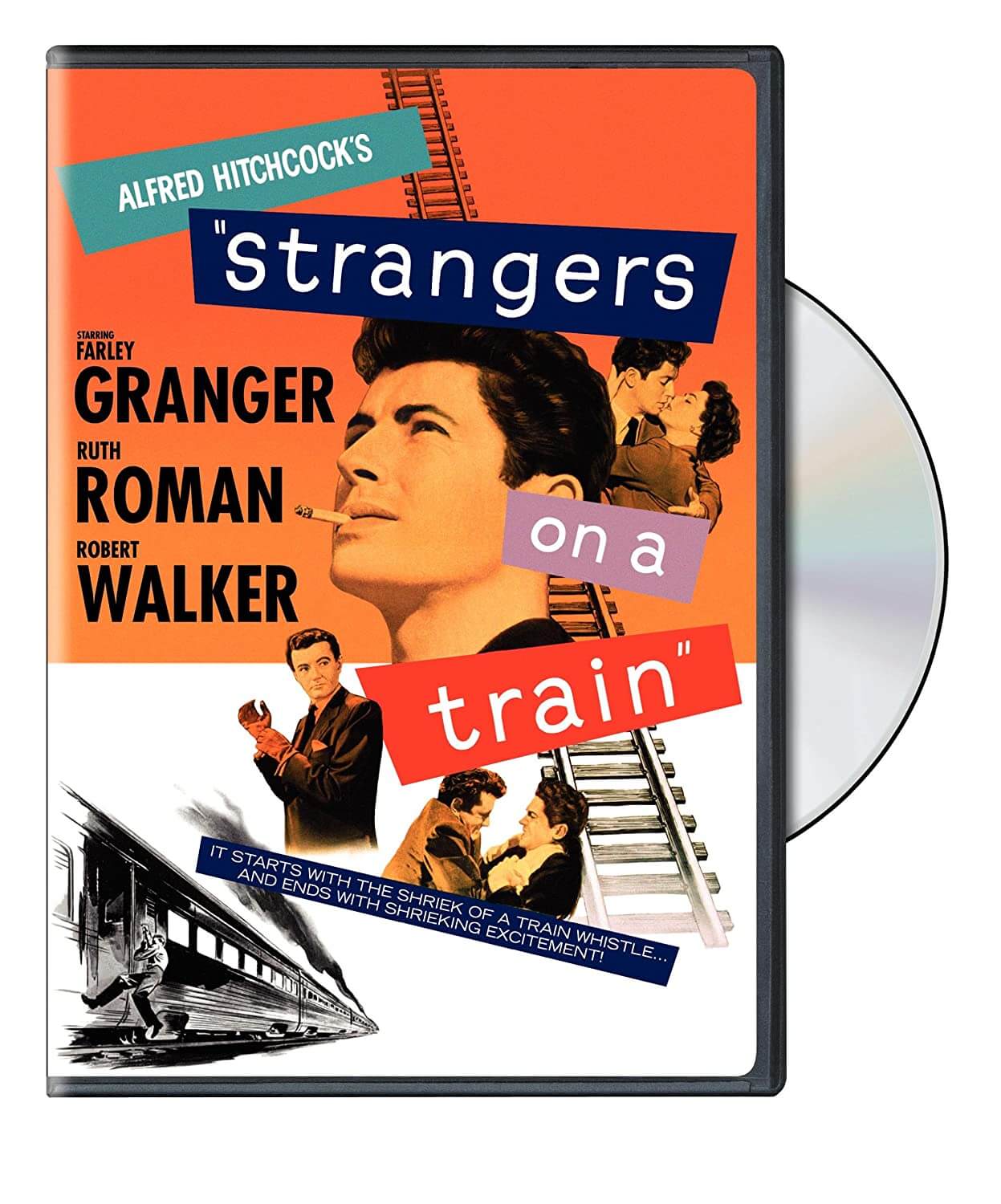
“A misunderstanding between a young tennis player (Farley Granger) and a charismatic psychopath (Robert Walker) leads to a swirling mess of murder and menace in one of Hitchcock’s most stylish and perfectly paced thrill rides,” writes Parade. “The film has aged beautifully, with Hitchcock’s bold and dazzling stylistic choices picked apart in film schools across the world, and its edgy and morbid take on human nature has been reflected in more modern works like Fargo (film and TV series), A Simple Plan and Gone Girl.”
“Perhaps the most elegant of Hitchcock’s one-line set-ups,” adds Esquire. “Trains in Hitchcock’s films are generally hotbeds of sex and death, and places where coincidence and the random co-mingling of people leads to spiraling consequences. Strangers on a Train uses all of that, and ladles on the idea of doubles and mirrors as well as adding a sexual ambiguity to Bruno and Guy’s relationship. At its root, it’s about an ordinary man desperately trying to make decisions while the walls close in.”
3. “Rear Window” (1954)
This is hands down one of the best Alfred Hitchcock movies. Starring James Stewart as a wheelchair-bound photographer who becomes obsessed with watching the lives of his neighbors, including the secrets they keep.
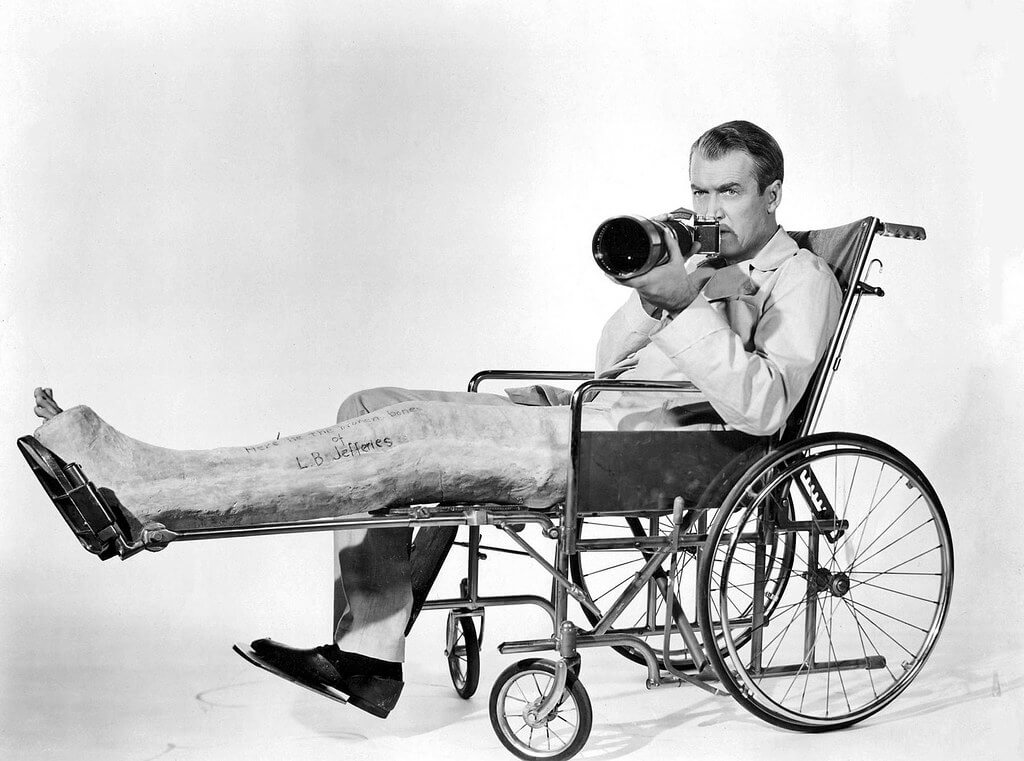
It tops IMDb’s list of Alfred Hitchcock’s best movies, as it writes “A wheelchair-bound photographer spies on his neighbors from his Greenwich Village courtyard apartment window, and becomes convinced one of them has committed murder, despite the skepticism of his fashion-model girlfriend.”
“It’s got the most interesting plot, it’s got consistent great performances and amazing shots in scene after scene,” says The Cinemaholic. “Hitchcock is the master of the Thriller, and ‘Rear Window’ is the most Thrilling of all his work. I can’ watch this movie without clinching my seat and biting my lip. ‘Rear Window’ is/was experimental and cutting edge and it’s endlessly watchable.”
“Hitchcock’s greatest film is a perfect thriller that interrogates our obsession with observing the lives of others,” states Entertainment Weekly. “[James] Stewart and Grace Kelly deliver endlessly charismatic performances, the cinematography is beautiful and precise, and the immense sets are staggeringly detailed…. Rear Window then feeds on our complex fascination with the human instinct to spectate, and neither Jeff nor the audience comes away completely innocent.”
5. “North by Northwest” (1959)
A high-stakes case of mistaken identity drives the plot for this masterclass in drawing out tension on screen. It’s a great bit of escapism with a stellar performance by Cary Grant. “With the Cold War as an ideal backdrop, Hitchcock now perfected the wronged-man-on-the run plot line he’d previously wrangled for The Lady Vanishes and The 39 Steps,” states TimeOut. “Cary Grant plays a New York advertising exec mistaken by some rough types for someone else and believed by no one (worst of all, not even his mom). Mount Rushmore and other striking locations take co-starring roles. A whirlwind of paranoia.”
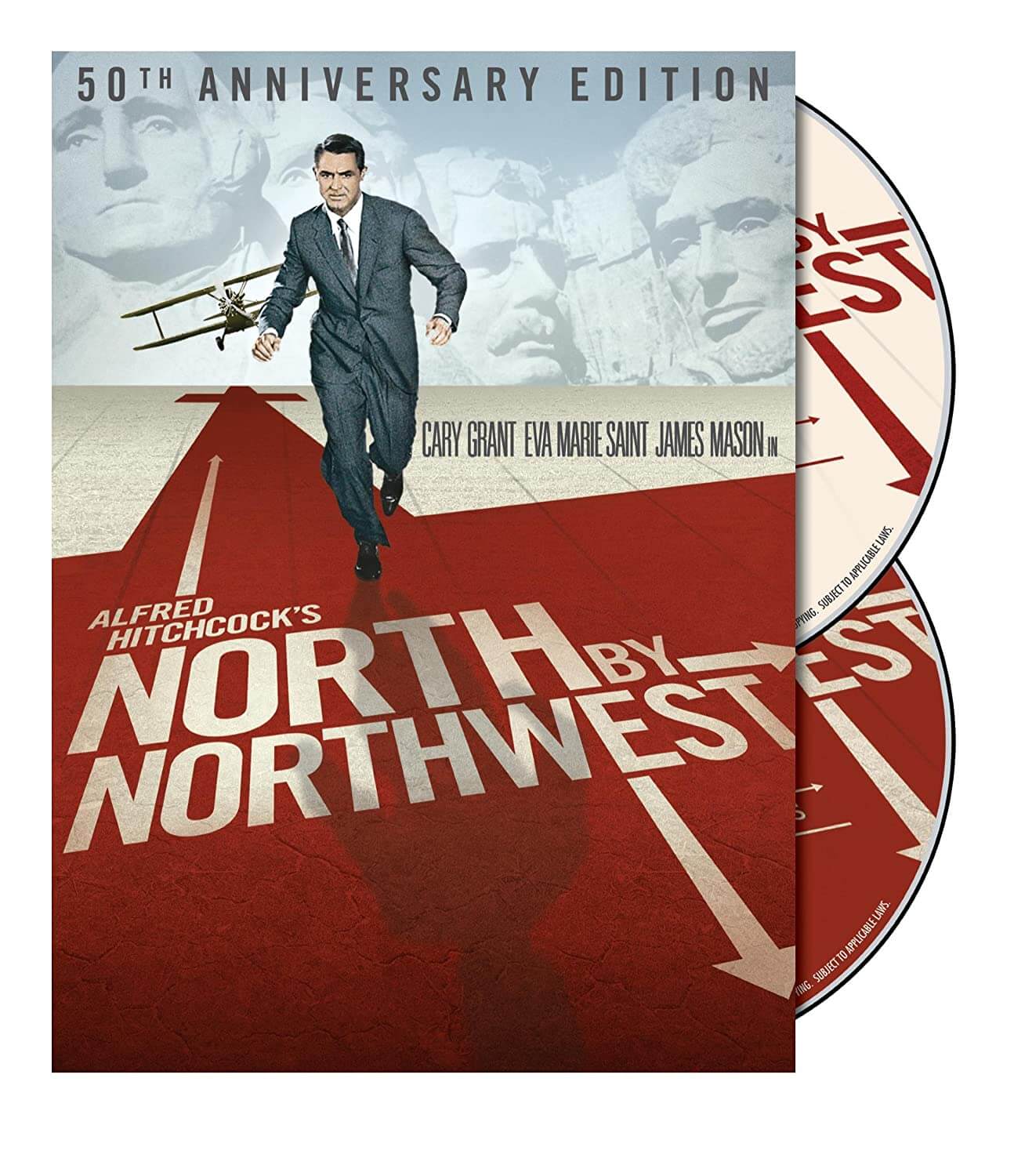
“His most famous film about mistaken identity, North by Northwest, is also one of the best Alfred Hitchcock movies,” writes Studio Binder. “Although it’s sometimes held back by poor pacing, North by Northwest’s elaborate sets and epic scale make it one of the great big budget pictures of the 1950s. And even though the first thing people think about with this film is the iconic crop duster attack, there is so much more to appreciate.”
“Gripping, suspenseful, and visually iconic, this late-period Hitchcock classic laid the groundwork for countless action thrillers to follow,” writes Rotten Tomatoes.
5. “Vertigo” (1958)
It’s a slow burn psychological thriller that explores what can go wrong with a romantic obsession. This visually stunning melodrama stars an against type James Stewart and a haunting Kim Novak. “More than six decades after it was released, Vertigo still packs a kinky, transgressive punch,” notes AARP. “Some have argued that Vertigo is the closest Hitchcock ever came to putting his own erotic and psychological neuroses on film, but either way, it’s a hell of a thriller that’s both twisted and haunting.”
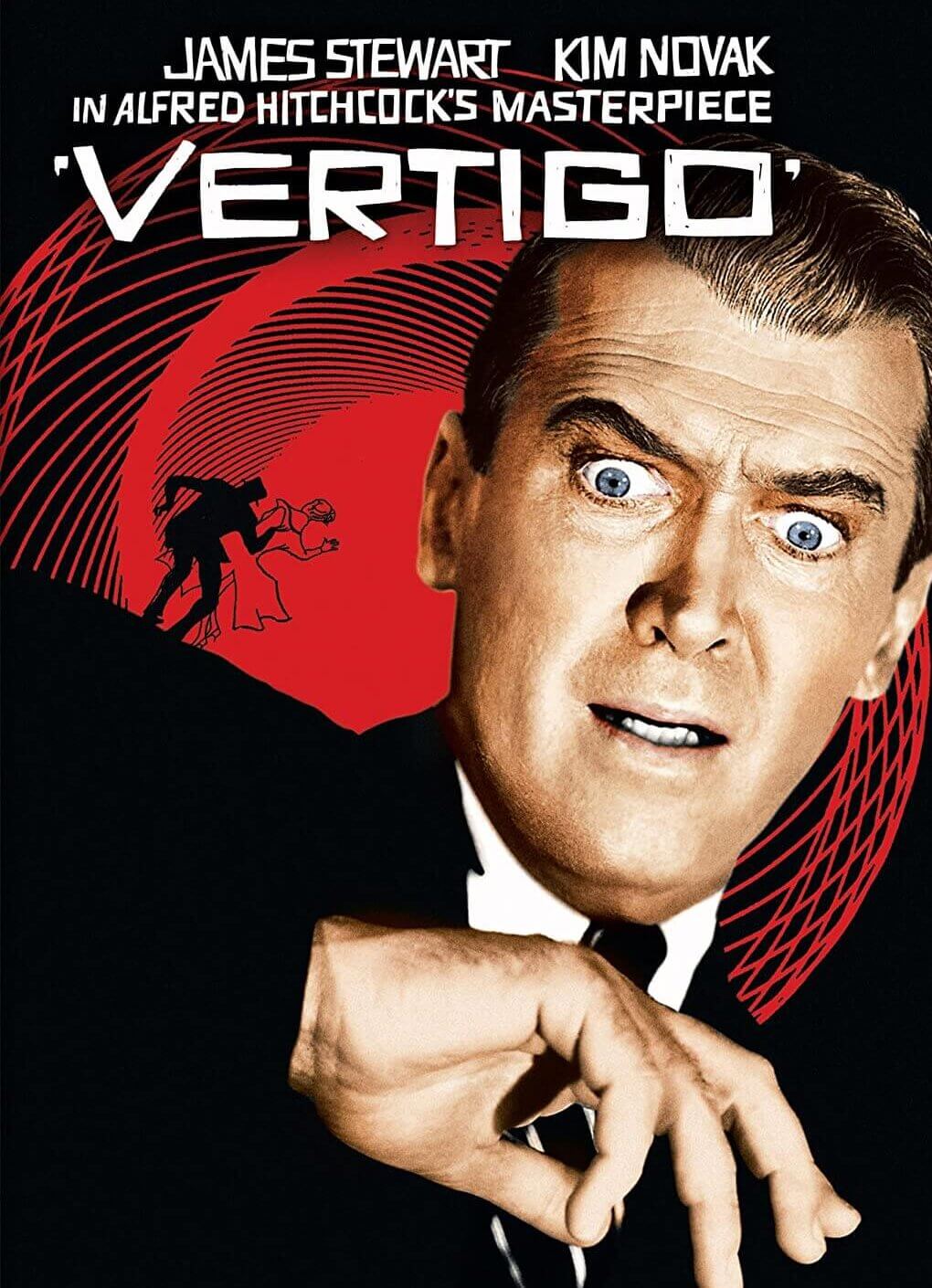
“Vertigo is perhaps his most critically admired, a work of layered genius,” gushes Parade. “Bernard Herrmann’s score heightens the atmosphere. Vertigo feels confessional, perhaps the master’s most personal picture.”
Esquire calls “Vertigo” a “Genre-hopping noirish Gothic psychological horror-thriller…Bernard Hermann’s spiraling, circling score ramps up the sense of repetition and dream-like entrapment. For a thriller, it’s an oddly oblique film which invites all sorts of readings but always feels slightly out of reach.”
You might also be interested in:
Sources
- Parade
- AARP
- Esquire
- TimeOut
- The Cinemaholic
- Taste of Cinema
- Studio Binder
- IMDb
- Rotten Tomatoes
- Entertainment Weekly
Note: This article was not paid for nor sponsored. StudyFinds is not connected to nor partnered with any of the brands mentioned and receives no compensation for its recommendations.
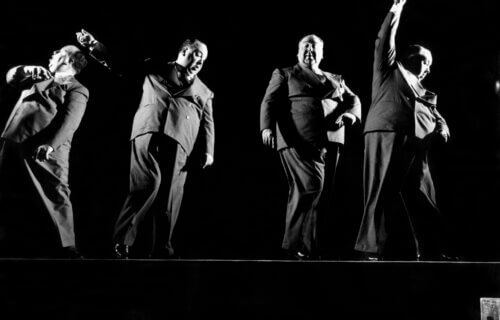
You marked both Vertigo and North by Northwest as #5.
All are excellent Hitchcock movies, but my favorite is The Trouble With Harry. It’s hardly ever shown on television.
I think that probably indicates a tie for fifth position.
Right!
You missed out on two of his more dramatic films with The Birds and Marne.
Clearly this post is a personal POV. Marnie and the Birds should be up there before Vertigo
Shadow of a Doubt is right up there as well.
I’m good with these choices, though I’d have to consider which two to replace with “Notorious” and “The Birds”.
Personally I would move rear window to #2 and remove vertigo from the top five and add The Birds
i loved “Rope”……
I like them all. Vertigo is my favourite. Frenzy still gives me goosebumps every time I watch it. Family Plot is always amusing…All his films…I like them all. Cheers!